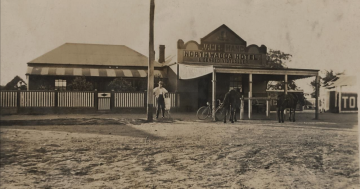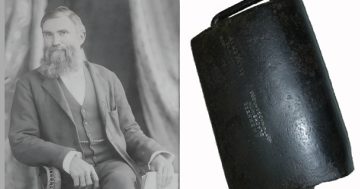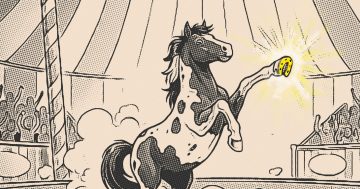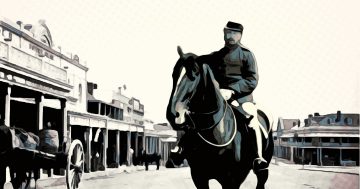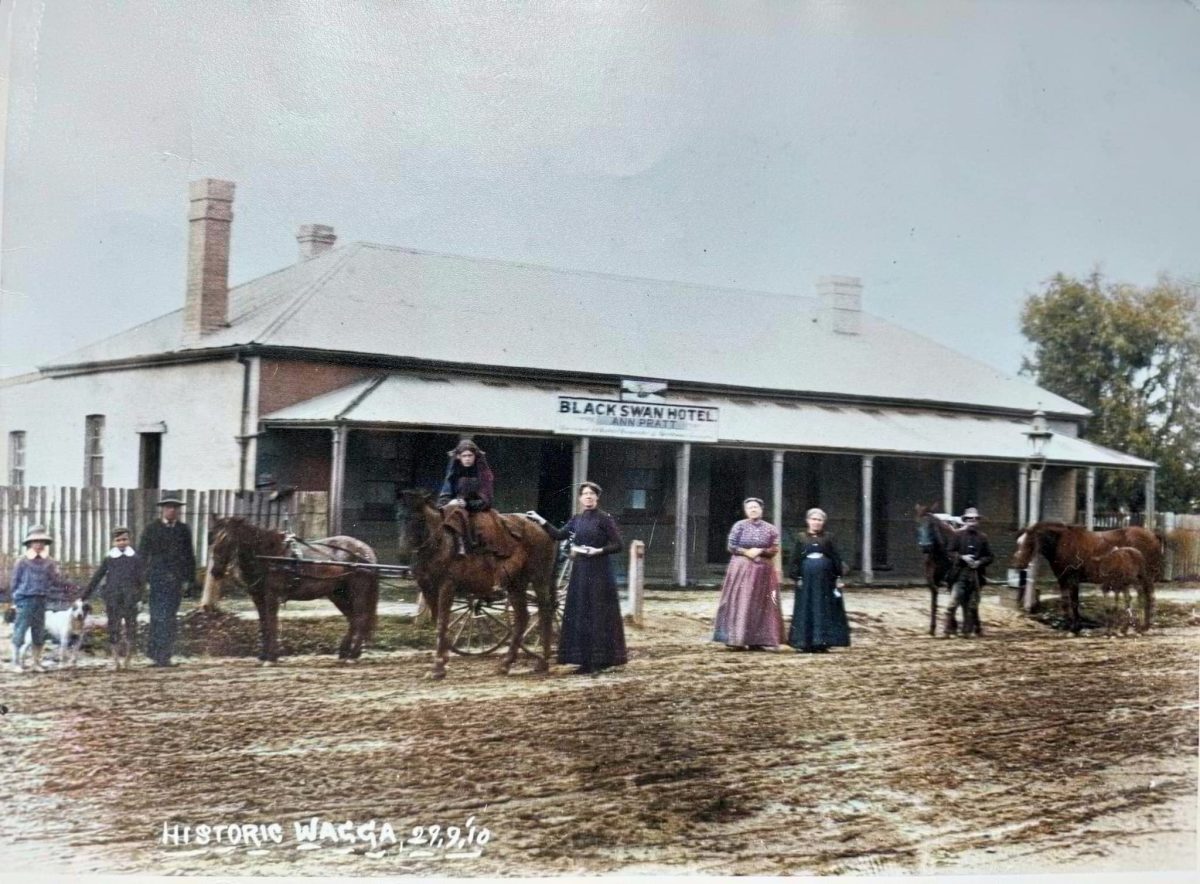
Ann Pratt’s Black Swan Hotel in September 1910. Photo: Charles Sturt University Regional Archives (coloured by M A Maddison using Palette).
This week the Museum of the Riverina takes us back in time and across the Murrumbidgee River to North Wagga and the Black Swan Hotel – affectionately referred to by locals today as the ”Muddy Duck”.
The Black Swan Inn was built in 1861 by Irishman Henry Moxham with the assistance of his mother-in-law Susannah Brown. Susannah’s husband “Tinker” Brown assured his place in Wagga folklore when he had his horse shod with golden horseshoes. It was, in fact, money from the sale of these golden shoes that funded the hotel’s original furnishings. Henry’s wife Hannah and her mother travelled to Sydney to purchase the furniture for the new hotel.
The hotel was officially opened on Monday, 30 June, 1861, with passengers being ferried across the river all day. Festivities included horse races and a ”capital spread”, attributed to the ”high bred” cook that Henry had arranged for the event.
The licensees of the Black Swan over the years have proved to be a colourful bunch of characters, some tragic, some a little eccentric.
John Joseph Fennell became the licensee in April 1862. Under his management, the hotel boasted 12 rooms and an adjoining paddock with a stockyard. As a prospector, J J had tried his luck on both the Californian goldfields (in 1849) and at Bendigo (1852-53). Before leasing the Black Swan, he was publican at the White Swan (also in North Wagga) and the Australian Hotel before the lure of gold called him back once again, this time to the Cowabee Reef in the early 1870s. Sadly, he died at Wagga on 15 March, 1877, when he jumped from a coach travelling over the Company Bridge and landed in the fast-flowing waters of the Murrumbidgee. He was found to have been ”temporarily insane”.
The next licensee was Charles Simpson. Legend has it that it was under his management that a girl named Mary Ann Bryant, a domestic servant from Goulburn, was employed. Tom Castro, who would go on to great infamy as the Tichborne Claimant, was a regular at the Black Swan. It was there that he crossed paths with young Mary Ann. Even though she was pregnant, Tom married her. Not once, but twice. But that’s another story …
Between 1867 and 1869, Daniel Boon was licensee of the hotel. Daniel was a successful publican and ran several hotels in Wagga from 1869 to 1876. In January 1876, Daniel, in a fit of drunkenness, shot and killed blacksmith Alexander McMullen in North Wagga. His name entered the local history books the following year when he became one of just five men hanged at the Wagga Wagga Gaol.
In August 1873, William Henry Woollett became the licensee and ran the hotel for the next six years. Sadly for William, he was arrested in 1878 and charged with setting fire to the hotel! The fire started in the cellar among some loose straw and empty boxes. Although William was seen attempting to put the fire out, the charging Constable, Caesar Cowle, overheard a rumour that he was actually starting the fire. The court dismissed the charges, but William left the Black Swan in May 1879.
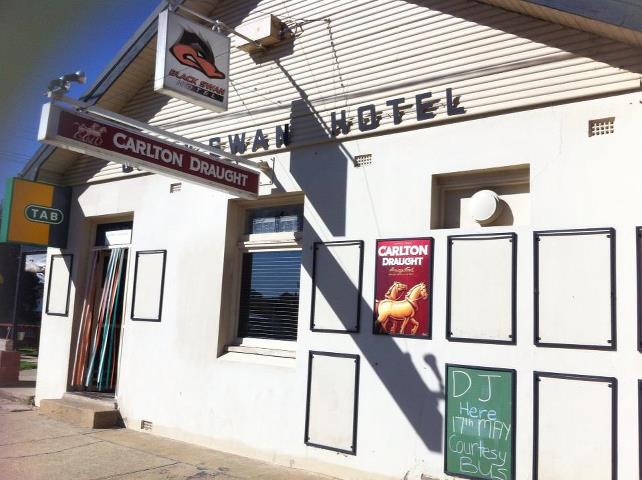
The Black Swan today. Photo: Facebook.
Between 1882 and 1921, a succession of Pratts were the licensees. In January 1903, John Pratt, as licensee, was convicted of supplying alcohol to pensioners, and fined 10 shillings. His wife testified that she had invited the age pensioners, whom she had known for years, into the establishment for a free drink on New Year’s Day. The police believed she was, in reality, selling them alcohol, and the judge agreed!
Here, in this photograph, which dates to 1910, Ann Pratt (widow of John Remington Pratt, who had been licensee from 1882-1890) was the licensee. Although we probably think of hotels as being a masculine domain (especially in Australia), hotels were not only places for men to drink, but they were also places of accommodation where a hot meal could be enjoyed. Until the 1960s, the publican was required to live on the premises.
As many had families, this brought the occupation into the domestic sphere as places that allowed women to raise their families while working alongside their husbands in the hotel. Perhaps it was thought that women would be less likely to drink the profits, or maybe they set better standards of behaviour among patrons, but whatever the case, women publicans became a common fixture in Australian pubs.
It followed that if these same wives became widows, it was natural for them to carry on the business. Hotels were not only their means of survival, they were their homes.
Today, the Black Swan remains one of Wagga’s favourite watering holes. If its walls could talk, what stories they could tell!







